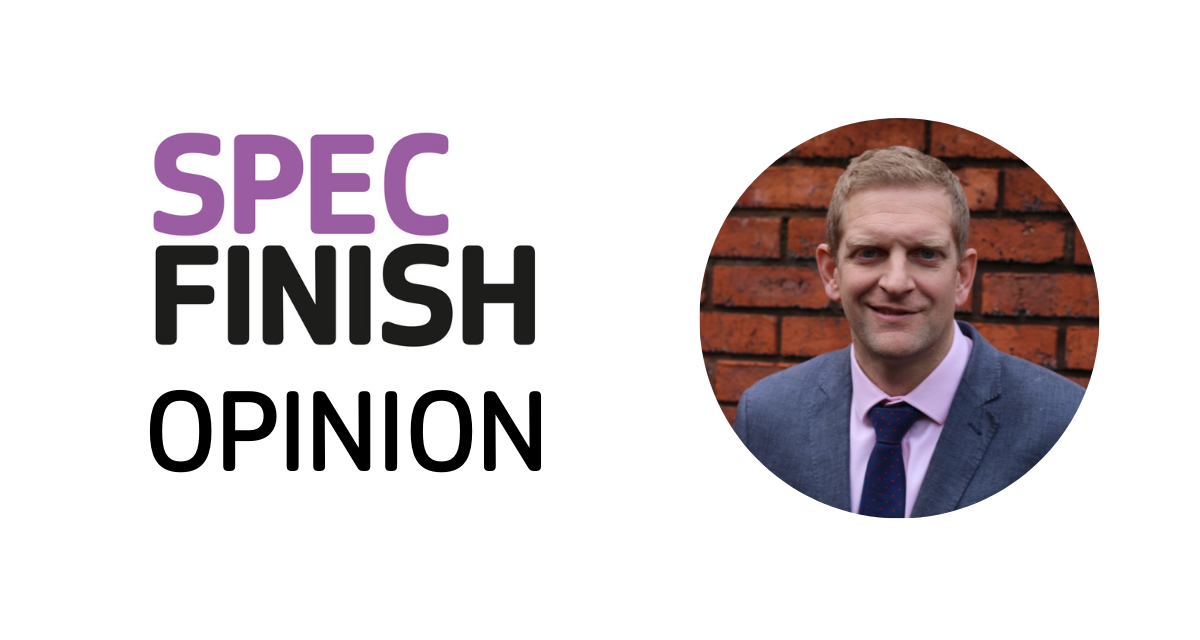There is a lot of talk of ‘transformation in construction – a faster, greener, better sector’. The vision is one, I think, we all share, I don’t know anyone who wants a slower, dirtier and worse sector. But the question exercising us at FIS is how we change when everything is moving so fast and the stakes are so high.
There isn’t a quick fix – the answer isn’t a bit of software, BIM, Modern Methods of Construction or even a clerk of works. All of these will help, but won’t, in isolation, deliver change and may in some cases over complicate the solution.
Better regulation is essential and the Building Safety Act will shift the dial, but it will also take time and the Government and leading stakeholders keep telling us that culture needs to change. It is simple to say but even talking in terms of a sector is a bit nebulous. In reality, a sector is lots of companies made up of lots of people, most of whom are doing their best, working too hard and desperately hoping to hang on in there till the end of the year. So how do you change a collective culture?
It was thinking about this that I reached for one of the bibles I keep by my desk, ‘The 7 Habits of Highly Effective People’. In this book; author Stephen Covey advocates that forming good habits is essential to transformation. The seven habits he draws out are:
1. Be proactive – Nothing just happens. Take responsibility, stop blaming everything on everyone else. Utilise your freedom to choose to choose to make it better.
2. Begin with the end in mind – Have a clear vision (better is not a destination) so what does it look like? Break it down and begin every day thinking about the things you need to do to move towards your goal.
3. Put first things first – We must be clear about where we are and how to escape the last minute trap. If we spend all of our time dealing with important and urgent stuff, we lurch from crisis to crisis and don’t find time for the important non-urgent stuff (like planning, design development and programming better at the pre-construction stage!).
4. Think ‘win/win’ – Work out how we can all get the best out of something, not just how we can grab the lion’s share (or shift the most risk).
5. Seek first to understand, then to be understood – Change is about understanding the problem from all perspectives. Win/lose is a finite game, win-win is the way to create sustainable business relationships.
6. Creative co-operation – Communication and teamwork are vital and respect, celebrating differences and building trust encourages co-operation. Relationships are undoubtedly too disposable and transactional in construction; we need to learn together from our failures without fear and ultimately be more open. We spend more time haggling down the variations than looking at lessons and learned and working out how we can all make more money on the next one!
7. Sharpen the saw – Just carrying on is not resilient, it is ridiculous! We need to learn to step out of the project.
There is a lot of common sense in the book and I often refer to it. I am convinced if we all focus on forming better habits, the seven habits of highly effective people could become the habits of highly effective businesses and ultimately the culture of an effective sector.
I, we and they FIS exists to share best practice and our community is built on a common set of values and I do believe these seven habits are reflected. At the heart of our business plan is the simple concept of change
Currently we are channelling this into research on procurement habits, trying to understand how and why the process has evolved to here, where here is, what the impacts are and how things can be improved. You will soon receive a request to participate in this work we are doing with Reading University and Barbour ABI. In the spirit of seven habits and empathyled change, I hope you will support us in this work.


